A Look Back at 2021: Achieving Better Health for Mothers and Children
Published on December 20, 2021
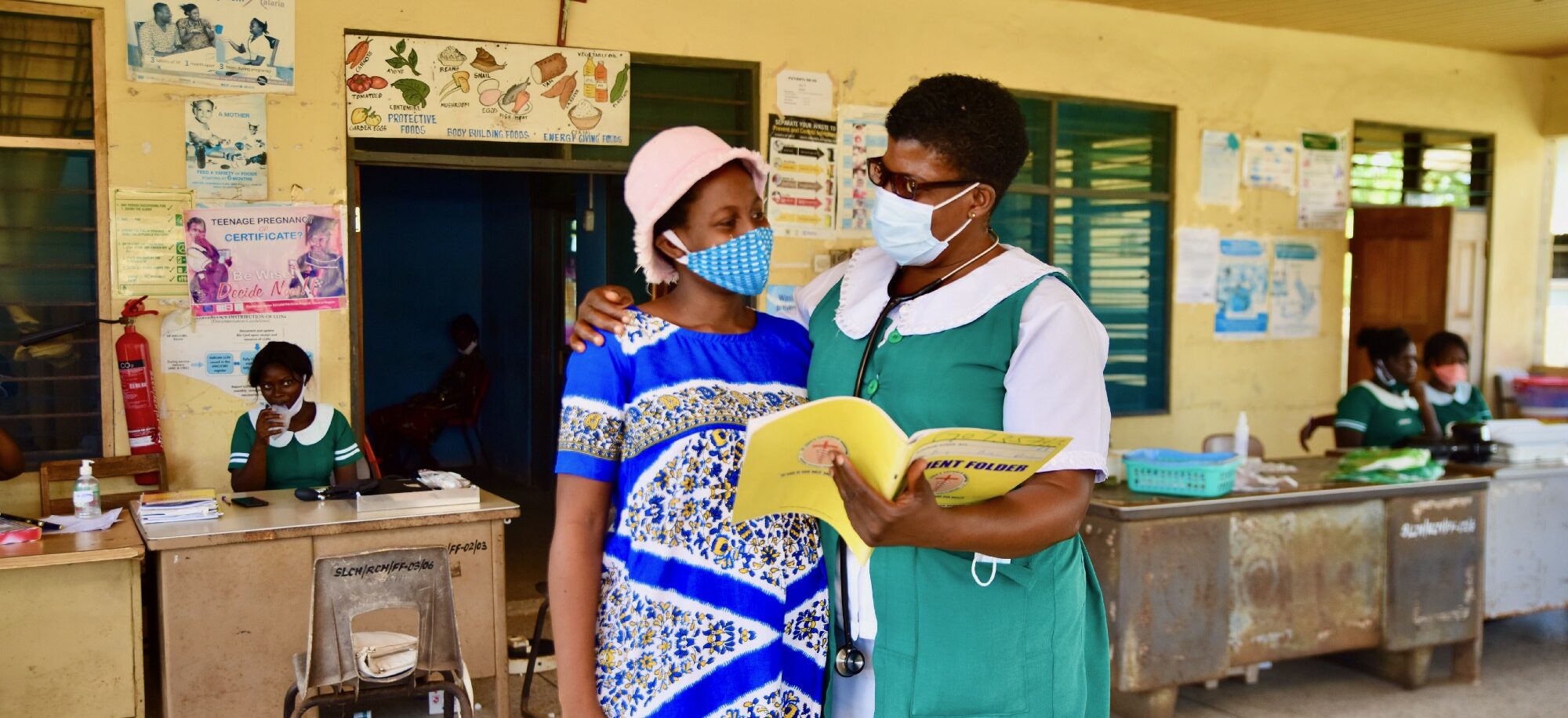
As 2021 comes to a close, MOMENTUM programs are revving up across the globe. We’re now present in 30 countries where we provide technical support to improve access to family planning and reproductive health services and high-quality health care for mothers and children. Despite the continued challenges posed by the COVID-19 pandemic, we forged ahead, responding and prioritizing our programs to meet the needs of the countries where we work, while also addressing and supporting communities hit hardest by the pandemic. From learning about social norms in South Sudan and helping deliver COVID-19 vaccines globally, to addressing female genital fistula care in Nigeria and youth and family planning issues in Malawi, MOMENTUM was hard at work across the world.
As part of our commitment to learning, adapting, and sharing best practices, MOMENTUM led nine conference sessions and hosted seven webinars. We produced and published nearly 40 program and technical resources and had representatives from 183 countries visit our website.

Take a closer look at what the MOMENTUM suite of awards accomplished over the past year.
Rising to the Challenge: Facilitating COVID-19 Vaccination Efforts
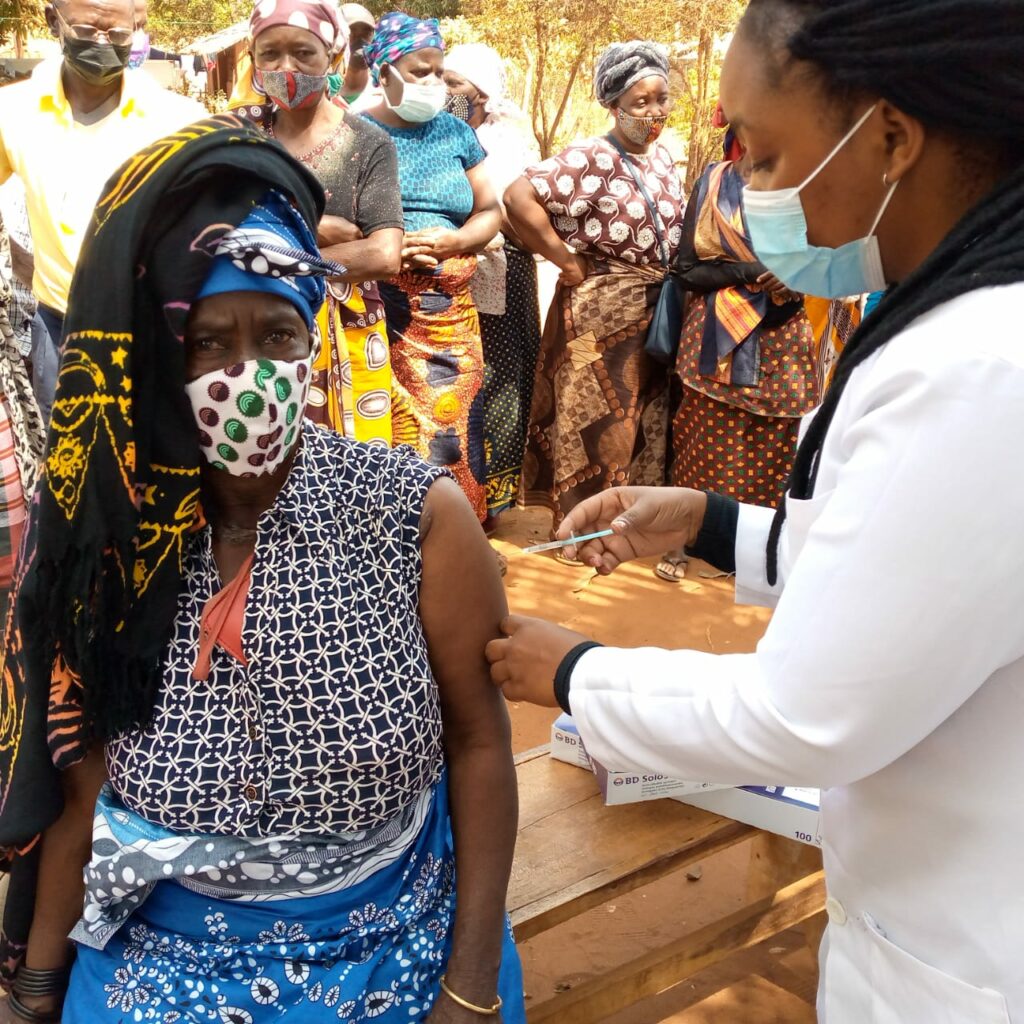
In the past year, we have seen progress in developing safe, effective COVID-19 vaccines and introducing them throughout the world, but these accomplishments come with many challenges. MOMENTUM Routine Immunization Transformation and Equity led efforts to help countries deliver COVID-19 vaccines to communities hit hardest, including those with other illnesses, older populations, and other marginalized groups. The project supported rollout of COVID-19 vaccines in the DRC, India, Kenya, Mozambique, and Niger, deploying teams of technical experts to support the design, planning, and execution of COVID-19 vaccine delivery.
Unpredictable shipment schedules coupled with the challenges of having to manage and coordinate across multiple COVID-19 vaccines and distribution strategies created challenges for vaccine program rollout. The project supported national immunization programs to adapt service delivery, communications, and supply chain approaches to promote efficient use of the vaccines, while striving to reach priority populations. As a result, countries were able to navigate the evolving COVID-19 vaccine supply situation and build resilience to handle future vaccination challenges.
Gaining Insights on Social Norms in South Sudan

To better understand how social norms (the informal, mostly unwritten “rules” that define social practices) are driving behaviors related to family planning use in South Sudan, this past year, MOMENTUM Integrated Health Resilience conducted a social norms assessment to find out what behaviors between men and women are considered appropriate and socially acceptable, regarding family planning and reproductive health care.
The survey revealed certain harsh truths—social norms continue to prevent women from making their own decisions about their family planning. While these findings are challenging, they provide MOMENTUM Integrated Health Resilience with a clear understanding of local norms and an opportunity to target interventions that are culturally sensitive and accessible to women and girls.
“The depth of information and detail from this survey provides a very rich resource that we can use to better design and implement our activities to build health resilience,” said George Hanna, the MOMENTUM Integrated Health Resilience Project Director. “With a deep understanding of the current sentiment toward family planning, we can best help the mothers and babies, children and fathers—indeed, the whole family—in the fragile settings we serve.”
Expanding Youth Demand for Family Planning in Malawi’s Private Sector
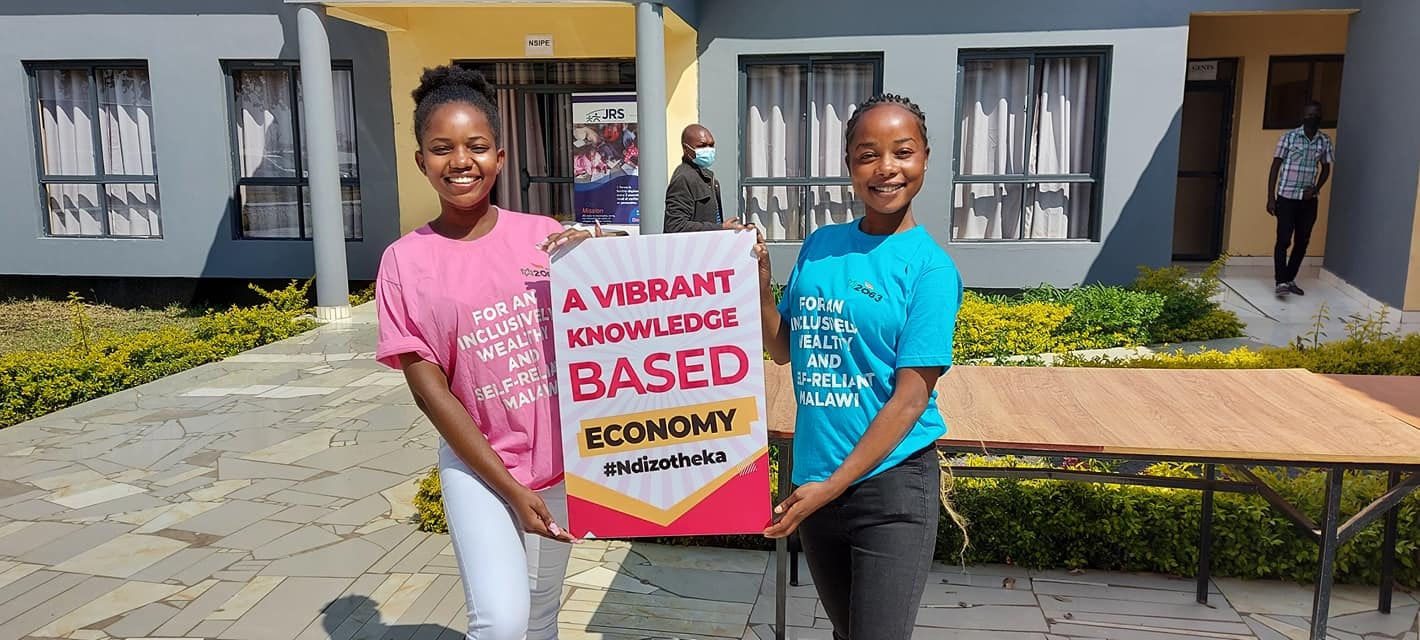
Despite progress in the use of contraceptive methods, access to family planning services in Malawi remains a challenge, especially for young women and adolescents. MOMENTUM Private Healthcare Delivery is helping address these challenges by connecting youth and adolescents with private health providers who deliver adolescent and youth-responsive family planning services.
Working in eight districts in Malawi, the project has trained 900 volunteers who work in communities to spread the word about family planning and refer youths who seek family planning services to nearby facilities, including private sector facilities that have received youth-responsive family planning training.
MOMENTUM Private Healthcare Delivery is working closely with the Government of Malawi’s National Youth Council, which organizes registered youth clubs into networks at various subnational levels. The project will collaborate with the Council in the coming year, to support its mandate to empower young people to participate in the sustainable development of their communities and continue to strengthen the capacity of the private sector to deliver high-quality family planning and reproductive health care to women and adolescents in Malawi.
“Our service delivery is demand driven by youth… and with this kind of arrangement, young people are now more involved in dictating where and when to get service and what type of sexual and reproductive health service or products they prefer,” said Flora Makwakwa, Social Behavior Change Communication and Demand Creation Manager and MOMENTUM Private Healthcare Delivery Project Lead, Malawi.
Protecting Mothers and Babies in Ghana During the COVID-19 Pandemic
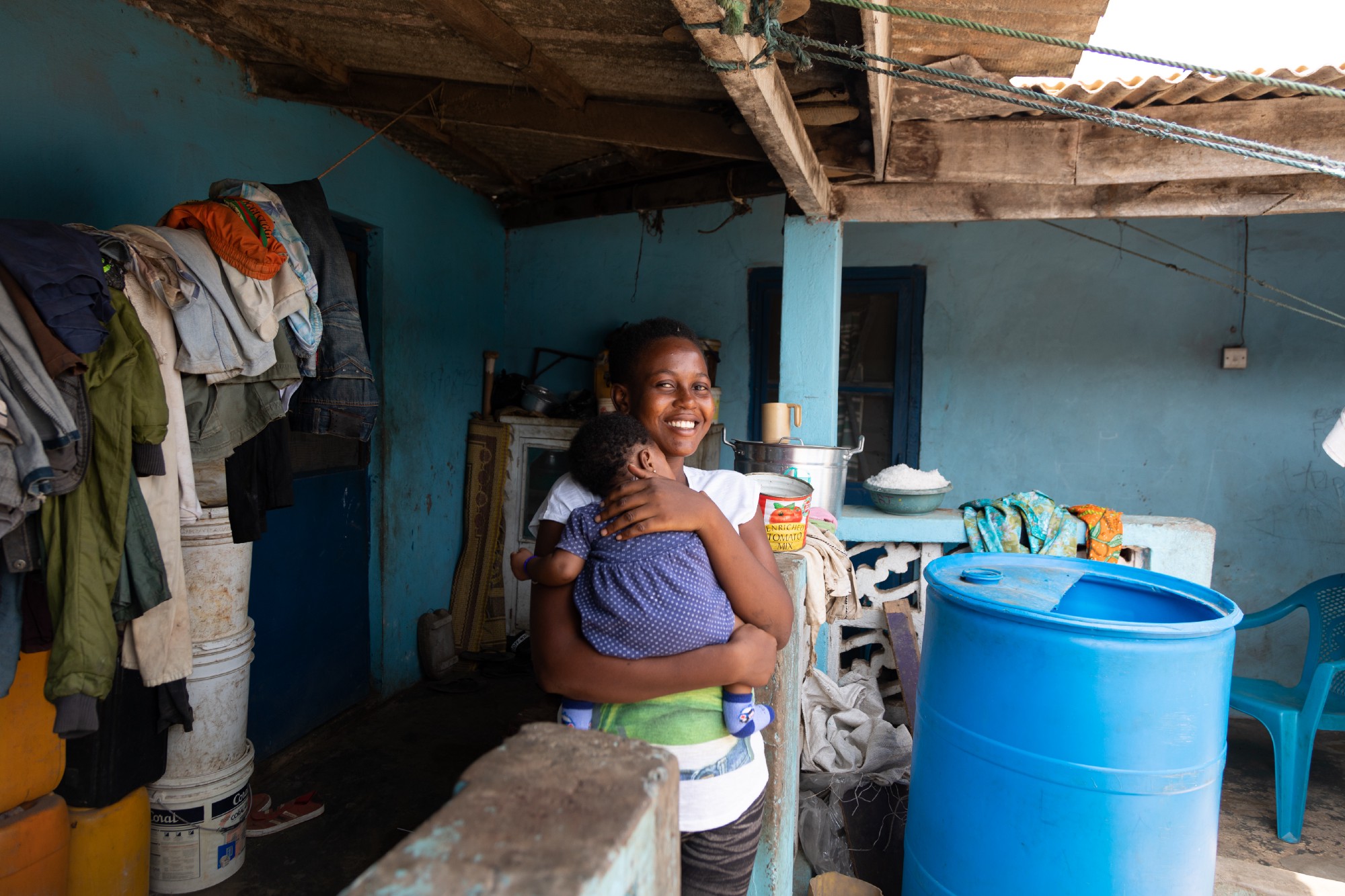
During the COVID-19 pandemic, women like Mary Atta-Boisson, 18 years old and pregnant, who live in rural areas like the Central Region of Ghana, were afraid to go to a health facility for fear of catching the virus. Thankfully, a community health worker stopped by Mary’s home for a routine visit when she was halfway through her pregnancy.
Through MOMENTUM Country and Global Leadership, rural communities that might not have access to complex or emergency health services now have networks of care that connect rural primary health facilities with district hospitals, improving communication between more experienced providers at hospitals and community health workers.
Learning that Mary was approximately 19 weeks pregnant, the health worker explained the risks of missing prenatal care outweighed the risks associated with COVID-19. She also reassured Mary that health centers and hospitals were instituting proper COVID-19 safety protocols. Convinced that visiting a health facility was the right choice for herself and the health of her baby, Mary donned a face mask and set out for St. Luke Catholic Hospital the next morning. Seeing hospital visitors wearing masks and practicing social distancing provided her with a huge sense of relief. By the end of her visit, Mary had scheduled visits for the remainder of her pregnancy which she diligently attended. Mary has since safely delivered a healthy baby girl.
Tackling Fistula’s Devastating Toll in Nigeria
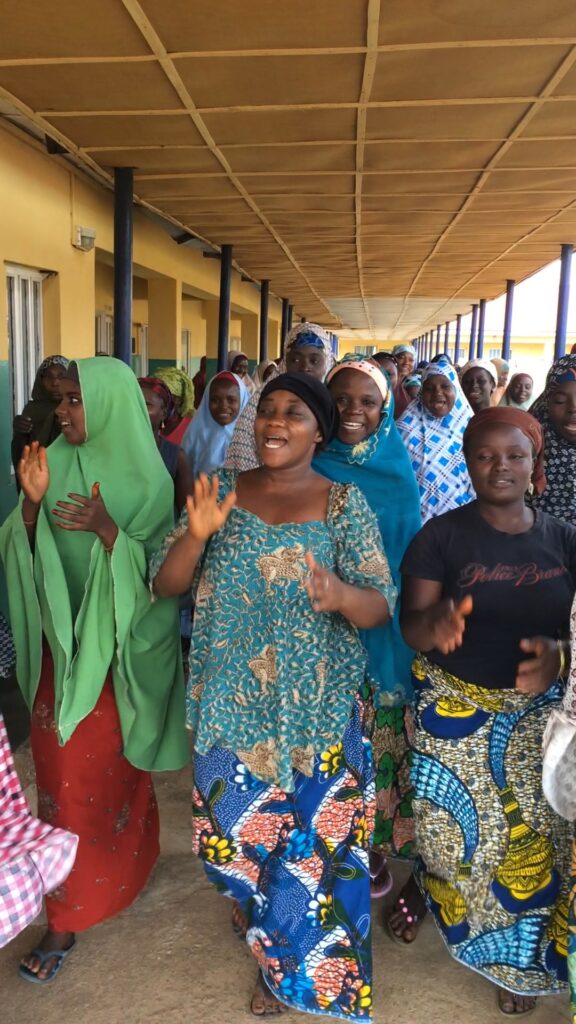
Obstetric fistula is a devastating and debilitating injury that can occur from obstructed labor, surgical error, or sexual violence. Often, young women living in poverty who experience fistula suffer from incontinence and may become ostracized and shunned by their communities. Today, as many as 400,000 Nigerian women— representing 40 percent of all cases worldwide1— languish on waiting lists for corrective surgery of this preventable and treatable condition.
In Nigeria, MOMENTUM Safe Surgery in Family Planning and Obstetrics has embarked on a new partnership with the Nigerian government, professional institutions, and local organizations to confront this preventable public health problem, building on previously established partnerships and achievements of the USAID-supported Fistula Care and Fistula Care Plus projects.
“This is a call to action,” said Dame Pauline Tallen, Nigerian Minister of Women and Social Affairs, at the June 2021 launch of the USAID Safe Surgery in Family Planning and Obstetrics activity. “All hands must be on deck, so many women are in so much pain. The need is tremendous. This robust program will reach more women who are suffering and empower survivors with hope and the joy of living again.”
Looking Forward
In the coming year, MOMENTUM programs and activities will continue to take shape, offering strategies and best practices to countries and improving our work with local partners who have the insight and credibility to develop locally tailored solutions. We look forward to paving a way forward for families and communities across the globe as we work alongside key partners to close access and equity gaps and bring quality health services to every woman and child.
Reference
- Bello, Oluwasomidoyin Olukemi, Imran Oludare Morhason-Bello, and Oladosu Akanbi Ojenbede. 2020. “Nigeria, a high burden state of obstetric fistula: a contextual analysis of key drivers.” Pan African Medical Journal 36: 22. https://www.ncbi.nlm.nih.gov/pmc/articles/PMC7388624/

